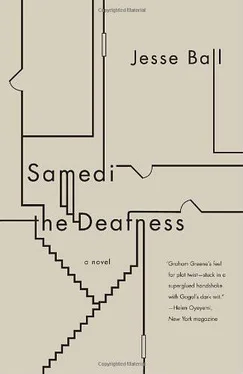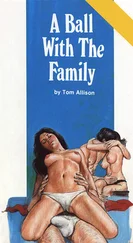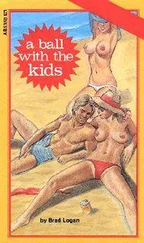Jesse Ball - Samedi the Deafness
Здесь есть возможность читать онлайн «Jesse Ball - Samedi the Deafness» весь текст электронной книги совершенно бесплатно (целиком полную версию без сокращений). В некоторых случаях можно слушать аудио, скачать через торрент в формате fb2 и присутствует краткое содержание. Год выпуска: 2007, Издательство: Vintage, Жанр: Современная проза, на английском языке. Описание произведения, (предисловие) а так же отзывы посетителей доступны на портале библиотеки ЛибКат.
- Название:Samedi the Deafness
- Автор:
- Издательство:Vintage
- Жанр:
- Год:2007
- ISBN:нет данных
- Рейтинг книги:5 / 5. Голосов: 1
-
Избранное:Добавить в избранное
- Отзывы:
-
Ваша оценка:
- 100
- 1
- 2
- 3
- 4
- 5
Samedi the Deafness: краткое содержание, описание и аннотация
Предлагаем к чтению аннотацию, описание, краткое содержание или предисловие (зависит от того, что написал сам автор книги «Samedi the Deafness»). Если вы не нашли необходимую информацию о книге — напишите в комментариях, мы постараемся отыскать её.
Samedi the Deafness — читать онлайн бесплатно полную книгу (весь текст) целиком
Ниже представлен текст книги, разбитый по страницам. Система сохранения места последней прочитанной страницы, позволяет с удобством читать онлайн бесплатно книгу «Samedi the Deafness», без необходимости каждый раз заново искать на чём Вы остановились. Поставьте закладку, и сможете в любой момент перейти на страницу, на которой закончили чтение.
Интервал:
Закладка:
James stood on the landing outside of his room. Another note had come. He read it and dropped it into the basket on the floor.
He went into his room. No one was there. There was a note in the pillowcase. He set it on the table next to the bed and did not read it. He went over and shut the window, which was still open.
There was a kind of odd efficiency to his movements. He marked it in himself, but could do nothing to prevent it. What will happen next? he thought.
He changed into a nicer suit, looked at himself in the mirror for a moment, then went back out into the hall. Grieve was standing there. She had been there all along.
— Let's go, she said. I know a shortcut.

Ansilon said something unintelligible.
— What did you say? asked James.
Something I'd forgotten, said Ansilon. I said it in the old language owls used to use when we took the shapes of men and became at times kings and kings' counselors, beggars and troubadours, ladies and saints, viziers and villanelles.
— Did you then? asked James.
He scratched his ear and shifted his weight from right to left.
They were under the pier down at the harbor, and small shafts of light sliced down through the rotting wood. James's pant legs were rolled up, and his feet were in shallow water.
Not I, said Ansilon. That was before my time. But my father did. He sired a family in ancient Rome and died with them. Owls can do that, you know.
— I don't understand, said James. If he was dead in antiquity, then how could you have been born in the Middle Ages?
Where, said Ansilon, does a boy like you get words like antiquity ? My mother was pregnant a long while, that's all. She carried me with her for twelve hundred years. That's why I'm the wisest of all.
— What was your father's family like? asked James.
A sailboat could be seen running by in the distance along the surface. Its sail was full with wind, and though it is true that there is nothing in nature that hurries, everything happening of its own accord and in its own time, in this case James felt the wind was hurrying the boat out to sea.
What will it find there? he wondered, and he dreamed of shipwrecks.
Not special, said Ansilon, but he loved them all the same. My mother would come to the window and try to call him away, but he would never come. He told his wife the truth of the matter, and she took to throwing stones at every owl she saw. Her children threw stones. Even my father, yes, he threw a stone or two.
— That's awful, said James. What happened then?
They put a bounty on owls in the neighborhood, and my mother was forced to leave forever. I wish you could have heard the song she sang when she came to his funeral, dressed as the shadow of a gypsy. The gypsy himself had gone away. Only the shadow was there, moving across the grass to the place where my father lay.

The supper was not as expected. No one was there. The table was set, the food had been put out, but only James and Grieve had come. Even Carlyle was absent. A sign had been put on the door.
COME IN, it said. BEGIN WITHOUT US. MY APOLOGIES.
They ate in silence. James's mind kept running back over the cipher book. Things did make more sense now. They had been right about that. But he didn't believe; he wasn't sure that what Stark intended was what ought to be. Had the time come for such a thing? He didn't know. Who could be responsible for so large a decision? he thought.
For he had figured out the cipher. It was simple, really, a substitution. The only difficulty was realizing what the substitution was. The key had been present at the beginning, in the unciphered epigraph.
Now, passages from the book floated here and there in James's head.
A major fact cannot be avoided any longer — man does not learn from small mistakes, but only from large ones. Man learns only by trial of disaster. History is not clear on this fact because history is the science of looking at events in only one kind of looking glass. The danger of this vagrant causality is that we are blind to other ways that things may have occurred.
James drank a sip of the wine. It was, of course, quite good, and cold. A sweet white, to go with the first course of smoked fish. He ate with his left hand only, a peculiarity that others had always commented on. But Grieve said nothing. Perhaps she had already noticed this, in the diner.
Trial of disaster . . what could the disaster be?
In the book, Stark explained his theory. Mankind had grown to be so skillful in controlling his own environment, in managing his affairs, that nature could no longer govern him as it properly had in the past. Disasters, object lessons on a grand scale, had once been nature's preferred method of lecture. But now they were mitigated, averted. Man had grown to swell the borders of states and lands. There was a chaos of meaning. It was difficult to say for sure what might be learned from this lesson or from that. And through it all, the primacy of certain nations, and their oppression of others.
What must be done is that an artificial catastrophe must be made to take place along with a specifically stated explanation. The method of this explanation must be biblical. Men are used to taking such instructions. Biblical too must be the disaster. The nation that must be humbled is the nation in which the most had once been possible, in which the greatest chance had been squandered. To Deafness, we must send a plague of Deafness, that the world learn the need to hear.
What did that mean? James had read and reread this section. He had gone to the library and checked to be sure he remembered it correctly, a thing he had never done before, for his recall was perfect, his confidence perfect.
To Deafness, we must send a plague of Deafness, that the world learn the need to hear.
What could it mean?
The door opened. McHale entered, along with Carlyle.
— She's back, McHale said.
Grieve sat up straight. Her expression changed.
— How can that be?
— She's upstairs. She's been up with him all day.
— But did she. .
— No, said McHale. She's alone.
— What's going on? asked James.
— Nothing, said Carlyle. I'm sorry to be just a terrible host. I've invited you for supper, and here it is, the day when you learn the truth, and then I come late, and you've already eaten the first course.
— You said, my friend, to begin without you, interrupted Grieve.
— And I meant it, said Carlyle.
An odd environment was being perpetrated, thought James.
— I meant it, he continued.
He looked at James.
— Stark will see you first thing tomorrow. He wants you to come by at seven A.M. There's much to be said, and little time.
— Certainly, there's little time, said McHale.
Grieve kicked James under the table. He looked up at her. Her face was concerned.
Don't worry, he thought. Worry is a thing for those with agency. We who have none of the one can have none of the other. But he did not believe it.
As soon as he returned to his room, he lay
down flat on the floor; flat on his back.
Grieve came in. She saw him lying there.
— I don't like this new James, she said. I didn't want to meet him ever, and now here he is in my bedroom.
— This isn't your bedroom, said James. It's mine.
— The whole place is mine, said Grieve.
— I broke the cipher, James said. I read your father's book.
Grieve looked at him carefully.
James got to his feet. He pulled off his suit coat and threw it over a chair. He took off his vest and his shirt. The window that had been open earlier, that he had closed, he reopened. The air was cold on his chest and arms. Grieve came up behind him, just as he had come up behind her earlier in the day. She put her arms around him.
Читать дальшеИнтервал:
Закладка:
Похожие книги на «Samedi the Deafness»
Представляем Вашему вниманию похожие книги на «Samedi the Deafness» списком для выбора. Мы отобрали схожую по названию и смыслу литературу в надежде предоставить читателям больше вариантов отыскать новые, интересные, ещё непрочитанные произведения.
Обсуждение, отзывы о книге «Samedi the Deafness» и просто собственные мнения читателей. Оставьте ваши комментарии, напишите, что Вы думаете о произведении, его смысле или главных героях. Укажите что конкретно понравилось, а что нет, и почему Вы так считаете.












